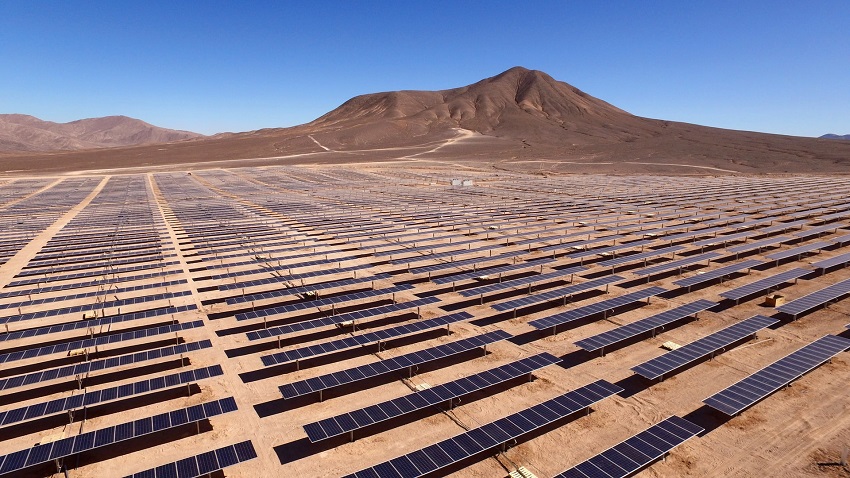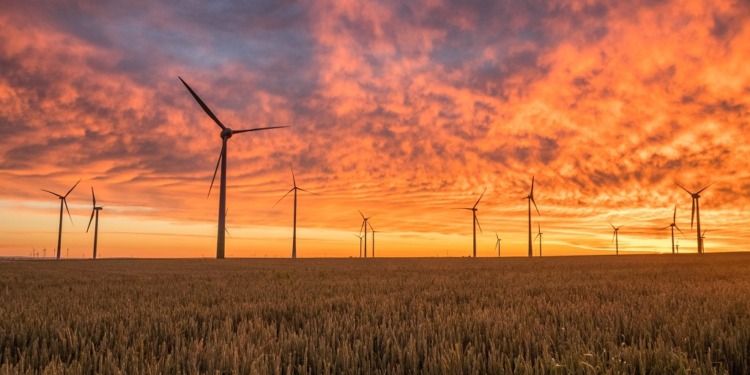The good news is that investment in climate tech has been surging. Venture capital and private equity investors poured nearly $90 billion into businesses developing climate change solutions in the second half of 2020 and first half of 2021, up 210% from the previous year, according to a report by global accounting firm PwC. Headlines have announced that climate tech — an industry-spanning space that includes everything from electric cars to lab-grown meat — is booming and that venture capital firms are “fighting to throw money“ at startups. But those headlines don’t tell the whole story.
In order to stabilize rising global temperatures and avoid the catastrophic consequences of global warming, the International Energy Agency has warned that annual investment in clean energy projects and infrastructure needs to more than triple to $4 trillion by 2030. Even though funding is on the rise, it isn’t enough and could stagnate amid growing global economic uncertainty. Amid these circumstances, more money, from a greater variety of sources, is needed to get more founders through the most precarious stages of climate tech innovation
These scientists, engineers, and other technical experts can face a long and winding path from first conceiving an idea in a lab or office to producing, testing, replicating, and commercializing it. Their funding needs can drastically change as they continue to refine and scale their products. A mechanical engineer developing a new type of clean engine, for example, might only need a few thousand dollars to refine her concept from her laptop, but millions of dollars to later grow a team, rent space, and manufacture those engines at scale.

Venture capital, which often dominates headlines about climate tech investment, can play an important role for founders able to access it. But it’s not something every founder can tap into and not always enough to get every founder all the way through commercialization, particularly when looking at the physical products being manufactured and deployed. Venture capital firms tend to target founders at earlier stages of innovation with shorter deployment timelines and expectations for high returns. Startups that don’t align with this profile have to seek alternative sources of funding. So do many startups led by innovators from historically marginalized backgrounds. It is no secret that venture capital has a diversity and inclusion problem that results in VC dollars flowing overwhelmingly to white innovators. The industry has been addressing the issue, but still has a long way to go. In the meantime, even founders who do manage to receive VC funding will likely need other funding sources along the way that are also not always accessible.
RELATED ARTICLES: ROM InWest Leads A € 2.7 M Investment In Quicargo | Why It’s Time for Climate Emergency Finance | Is $100 Billion in Climate Finance Enough to Offset Climate Damage? | What You Might Not Know About Impact Investing, and How It Can Help Stop the Climate Crisis | Bridging The Green Gap – The Role Of Central Banks |
Funding gaps are particularly pronounced during two “valley of death” phases. During the idea-to-prototype phase, founders often can’t tap capital from investors who need more evidence of viability than founders can prove so early in their entrepreneurial process. Government research and development funding plays an important role during this period but is limited and has shortcomings, too, including its own diversity and inclusion problem.

The commercialization phase is also difficult for founders who need to raise the most money yet in order to gear up to deploy their concepts to customers. Innovators at this late stage are also likely to benefit from government funding, which is slowly starting to ramp up again in the U.S. under the Biden administration, following a period of waning activity. But there is much more that can be done to fill climate tech funding gaps and allow traditional VCs to work in conjunction with additional options for founders scaling climate innovations. Here are the three most impactful actions funders and anyone else in the climate tech space can take to spur urgent innovation:
1. Expand access to capital options: Foundations, governments, investors, and other funders should expand all capital options available to climate tech innovators, particularly options that would fill the most pronounced gaps. More philanthropic and catalytic capital is needed for innovators in the first “valley of death” who may be viewed as too risky by venture capitalists. This type of funding accepts the potential longer-term development timelines, intensive research, and large capital needs required by some of the most urgent climate tech in development. Government grants and matching programs, in which private partners match government funds, can help de-risk investments and spur climate tech innovation. Fellowships that fund the founder and their innovation can also fill critical gaps and offer mentorship and other resources that benefit innovators figuring out how to get their products into the world.
2. Support a global database of capital options: The scientists, engineers, mathematicians, and other technical experts behind the most cutting-edge climate tech innovations are often novices in the world of finance. Their time is also consumed by all the work that goes into innovation and, therefore, often don’t have the capacity to study up on funding options. A user-friendly global database that could help innovators easily access funding opportunities and assess which ones best align with their stage of innovation would go a long way to funding their crucial work. This tool can also be utilized by funders in the space including VCs who wish to point founders to the right capital stack based on their needs.
3. Take an ecosystem approach to support climate tech: Accelerating climate solutions requires an all-hands-on-deck approach. This means that funders should not only play an active role in connecting founders in their portfolio to capital options, but they should also see themselves as educators who can steer founders outside of their portfolio to the right funding options. This ecosystem approach, marked by collaboration over competition, is ultimately what will catalyze more funding for innovators and free them up to focus their energy on the most important thing: their breakthrough innovations that could very well change the course of our future.
Editor’s Note: The opinions expressed here by Impakter.com columnists are their own, not those of Impakter.com –In the Featured Photo: Wind Turbines. Photo credit: Unsplash.











